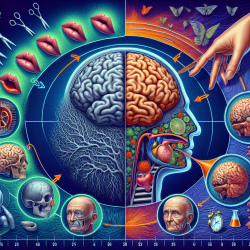Introduction
In the realm of special education, online therapy services have become an indispensable tool for reaching students who require specialized support. As a Special Education Director, it is crucial to stay informed about the latest advancements in technology and research that can enhance the delivery of these services. One such advancement is the use of remote sensing technology, which, although primarily used in climate change research, offers valuable insights that can be applied to improve online therapy services.
Understanding Remote Sensing and Its Application
Remote sensing involves the use of satellite data to monitor and analyze various environmental phenomena. The research article titled "Remotely Sensing Potential Climate Change Tipping Points Across Scales" highlights the role of satellite remote sensing in identifying and anticipating climate change tipping points. While the primary focus of this research is on environmental monitoring, the methodologies and insights gained can be adapted to enhance online therapy services in special education.
Implementing Research Outcomes in Online Therapy
Here are some ways in which the outcomes of the research on remote sensing can be implemented to improve online therapy services:
- Data-Driven Decision Making: Just as remote sensing provides data for anticipating climate tipping points, therapists can use data analytics to anticipate and address potential challenges in therapy sessions. By analyzing patterns in student engagement and progress, therapists can tailor their approaches to meet individual needs more effectively.
- Early Warning Systems: The concept of early warning systems in climate change can be adapted to identify early signs of disengagement or regression in students. This proactive approach allows therapists to intervene promptly, ensuring that students remain on track with their therapy goals.
- Enhanced Monitoring: Remote sensing offers fine-resolution monitoring of environmental changes. Similarly, online therapy platforms can incorporate advanced monitoring tools to track student progress and provide real-time feedback to therapists, enabling them to make informed adjustments to their strategies.
Encouraging Further Research
While the application of remote sensing principles in online therapy is still in its nascent stages, it presents a promising avenue for further research. Practitioners are encouraged to explore the following areas:
- Integration of AI and Machine Learning: Investigate how artificial intelligence and machine learning can be integrated with online therapy platforms to enhance data analysis and provide personalized therapy recommendations.
- Cross-Disciplinary Collaboration: Collaborate with experts in remote sensing and data analytics to develop innovative tools and methodologies that can be applied in the context of online therapy.
- Longitudinal Studies: Conduct longitudinal studies to assess the long-term impact of data-driven approaches on student outcomes in special education.
Conclusion
The intersection of remote sensing technology and online therapy services offers a unique opportunity to enhance the delivery of special education. By leveraging data-driven insights and adopting proactive monitoring strategies, therapists can provide more effective and personalized support to students. As we continue to explore this promising field, further research and collaboration will be key to unlocking its full potential.
To read the original research paper, please follow this link: Remotely sensing potential climate change tipping points across scales.










